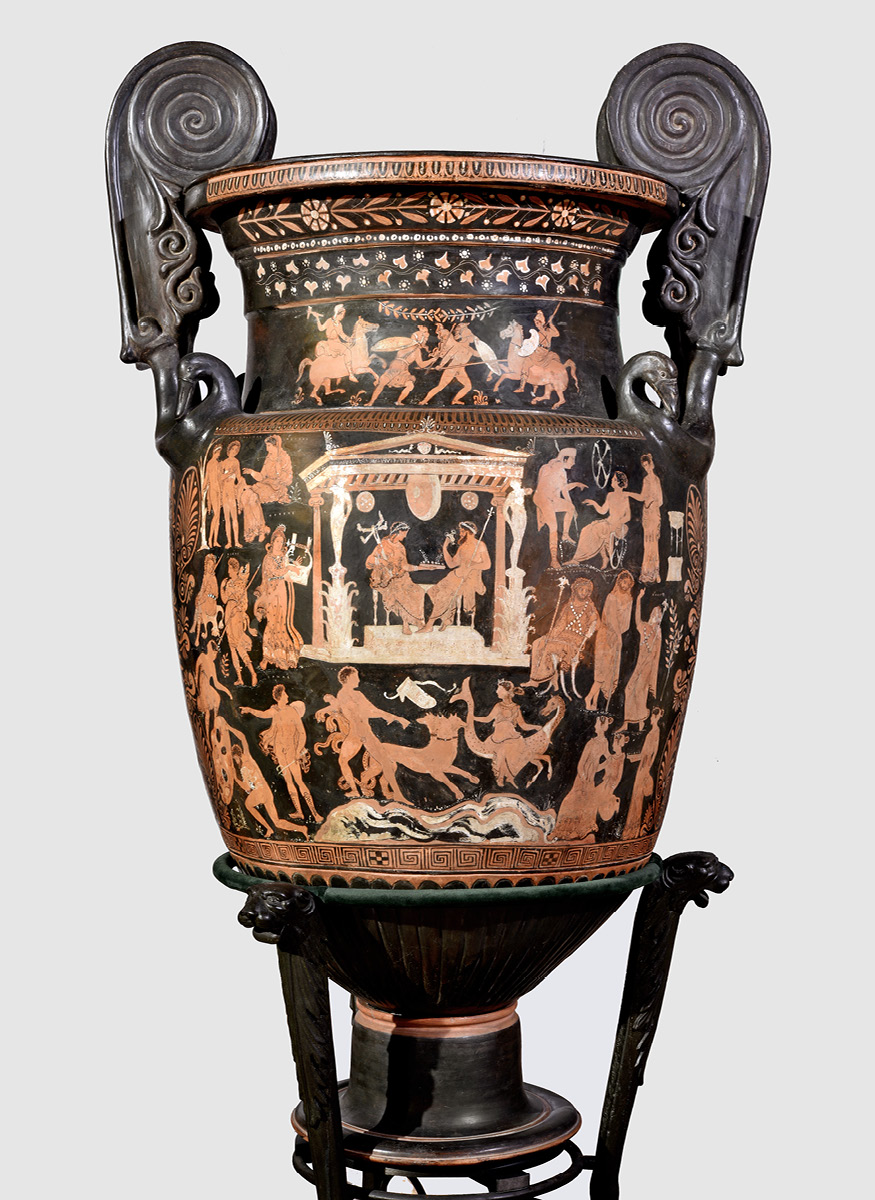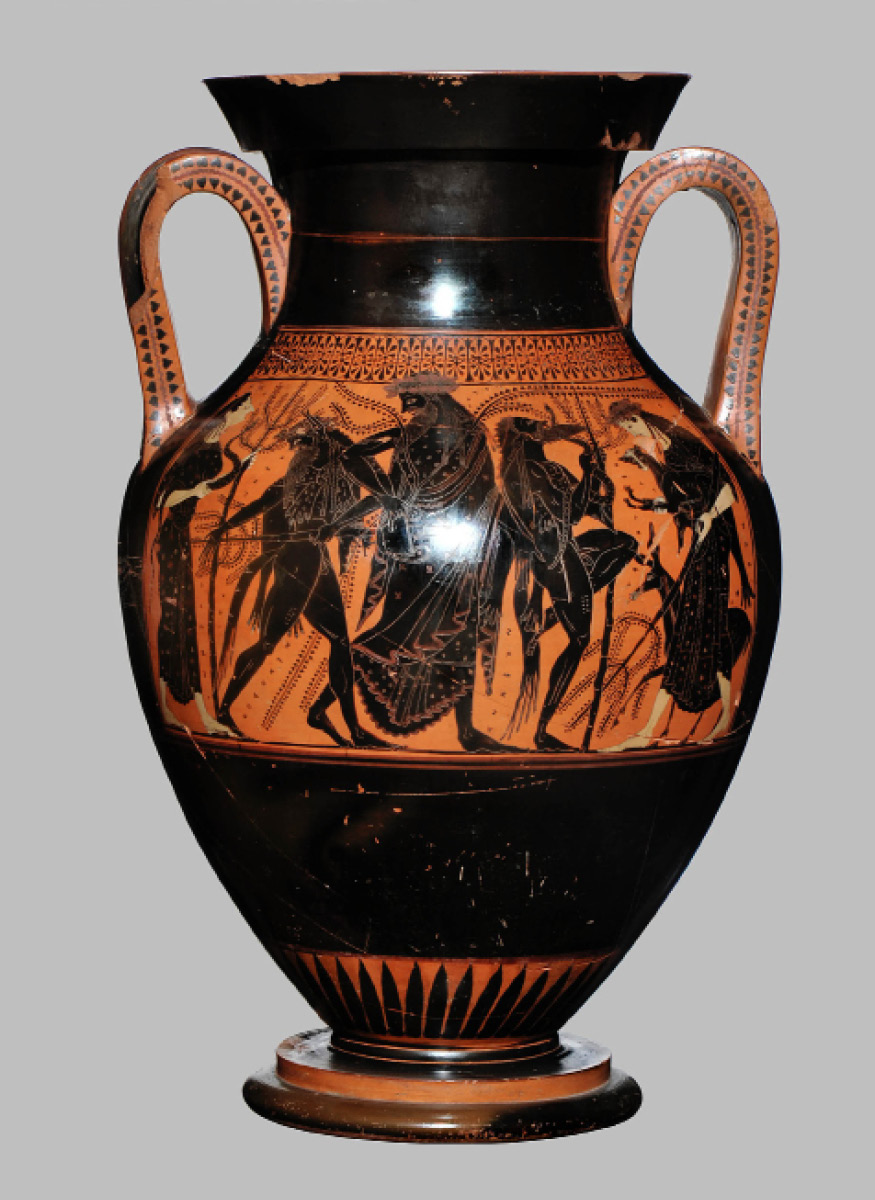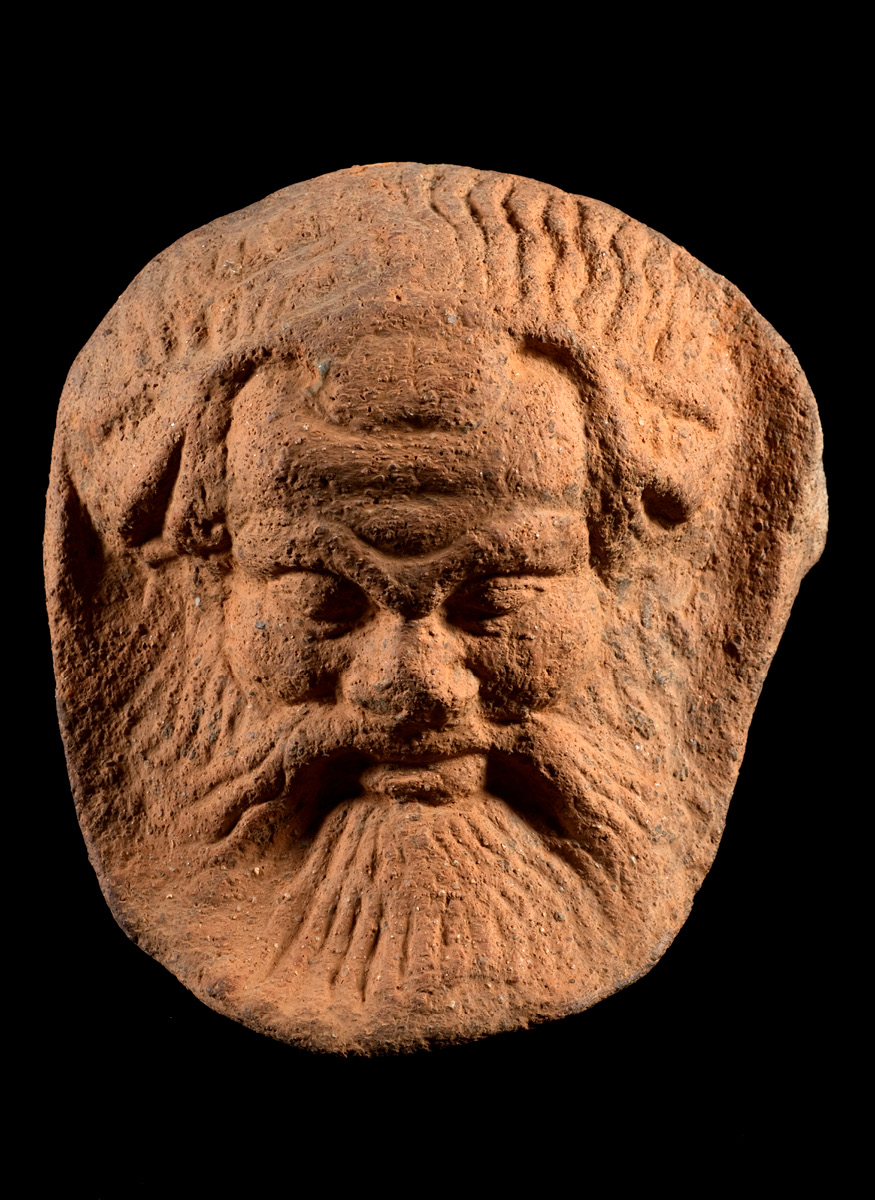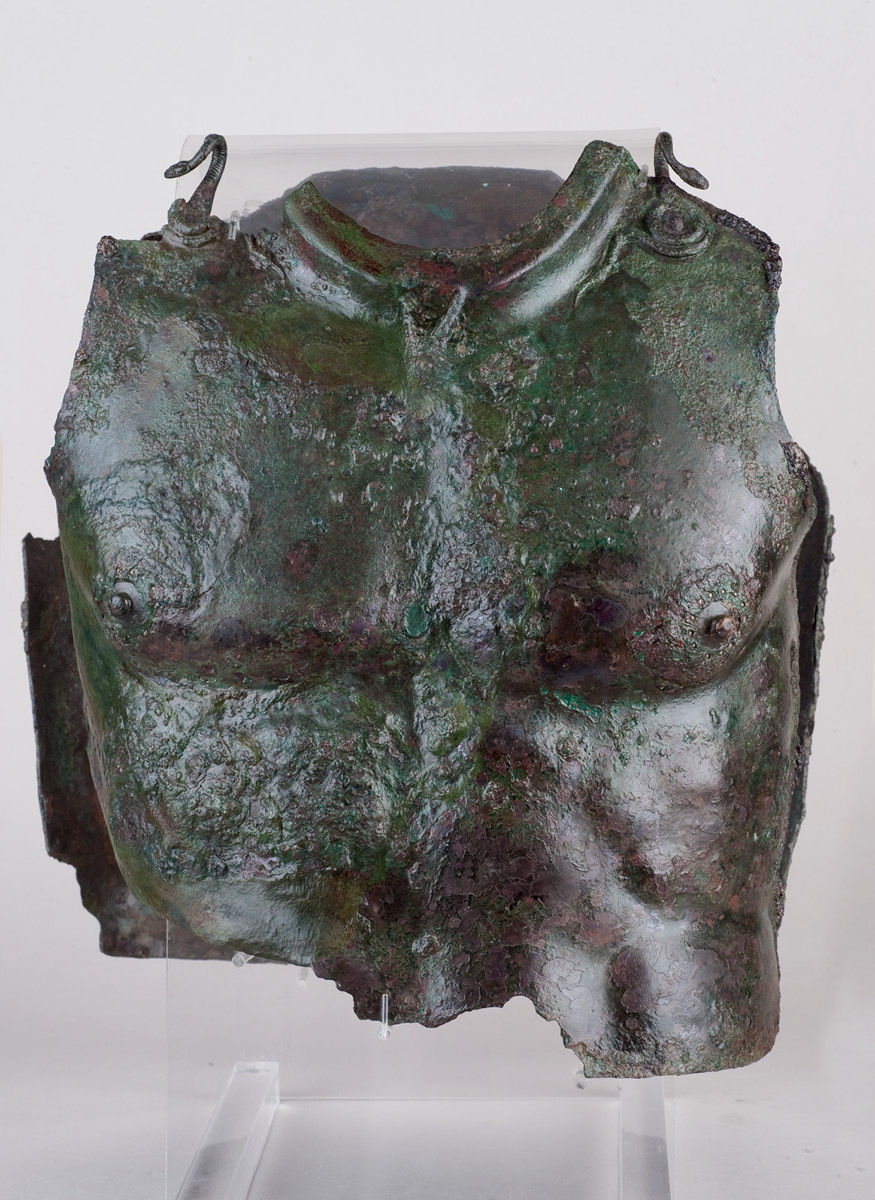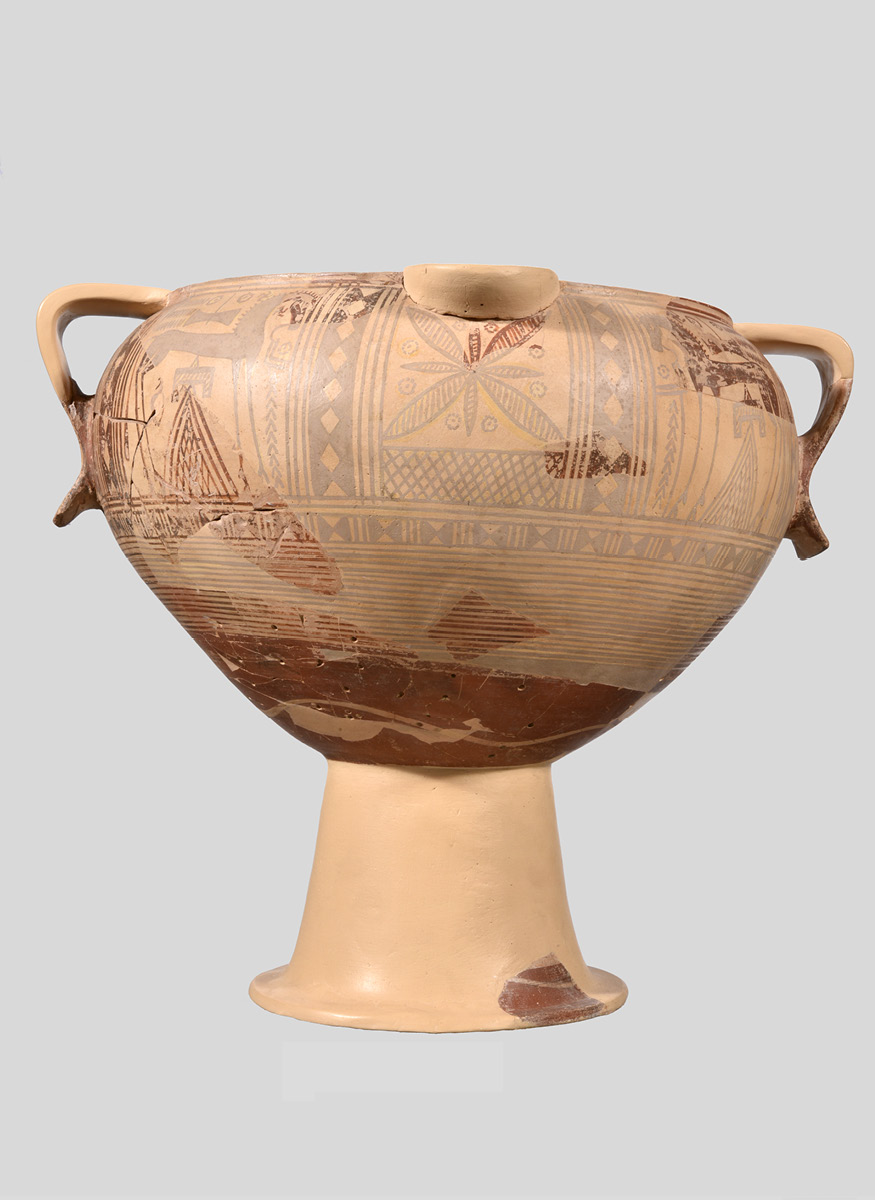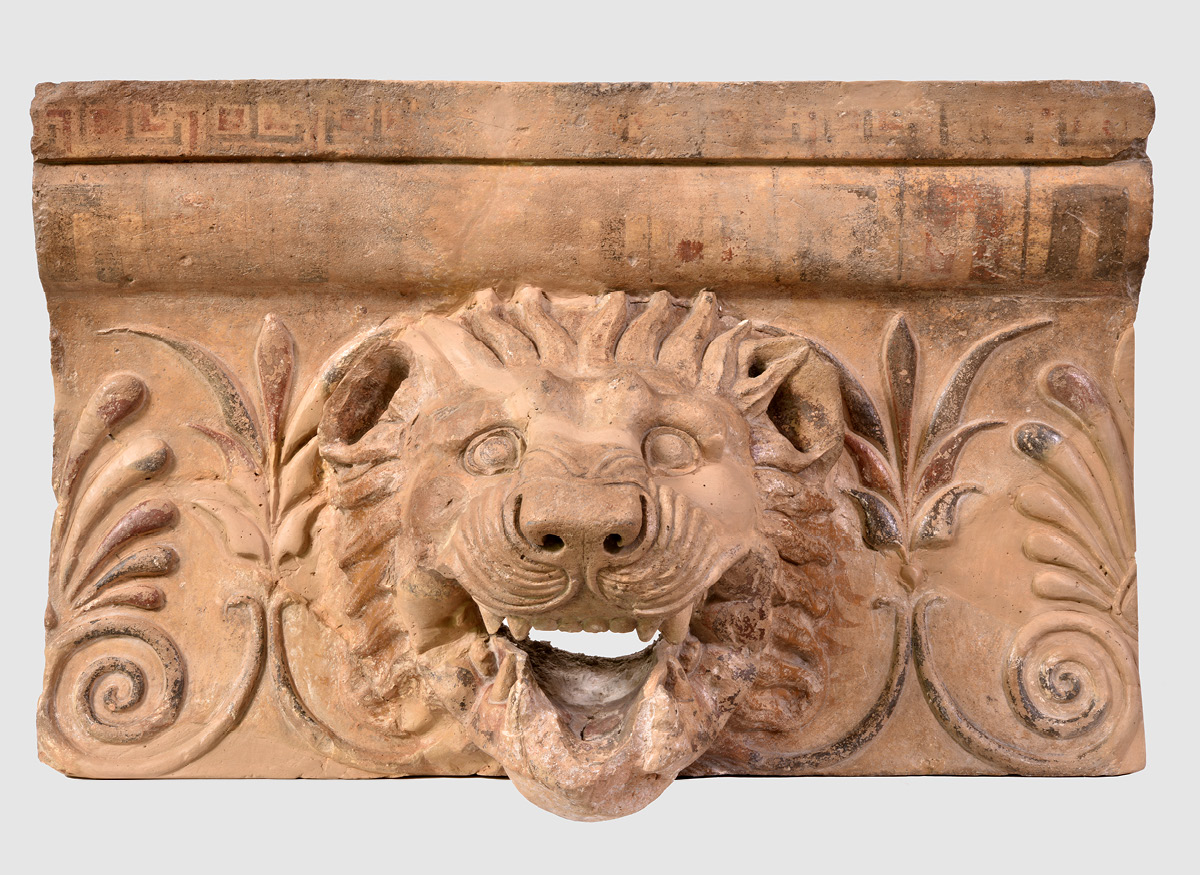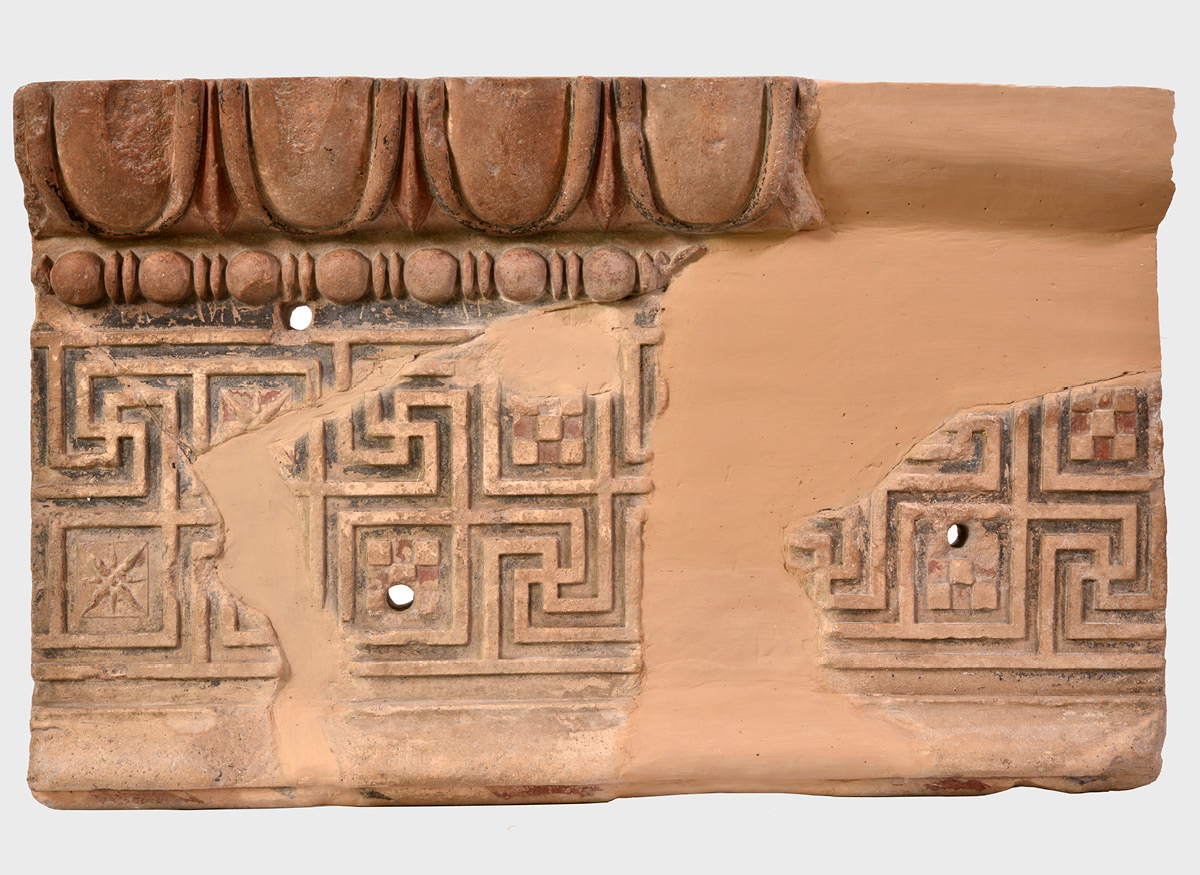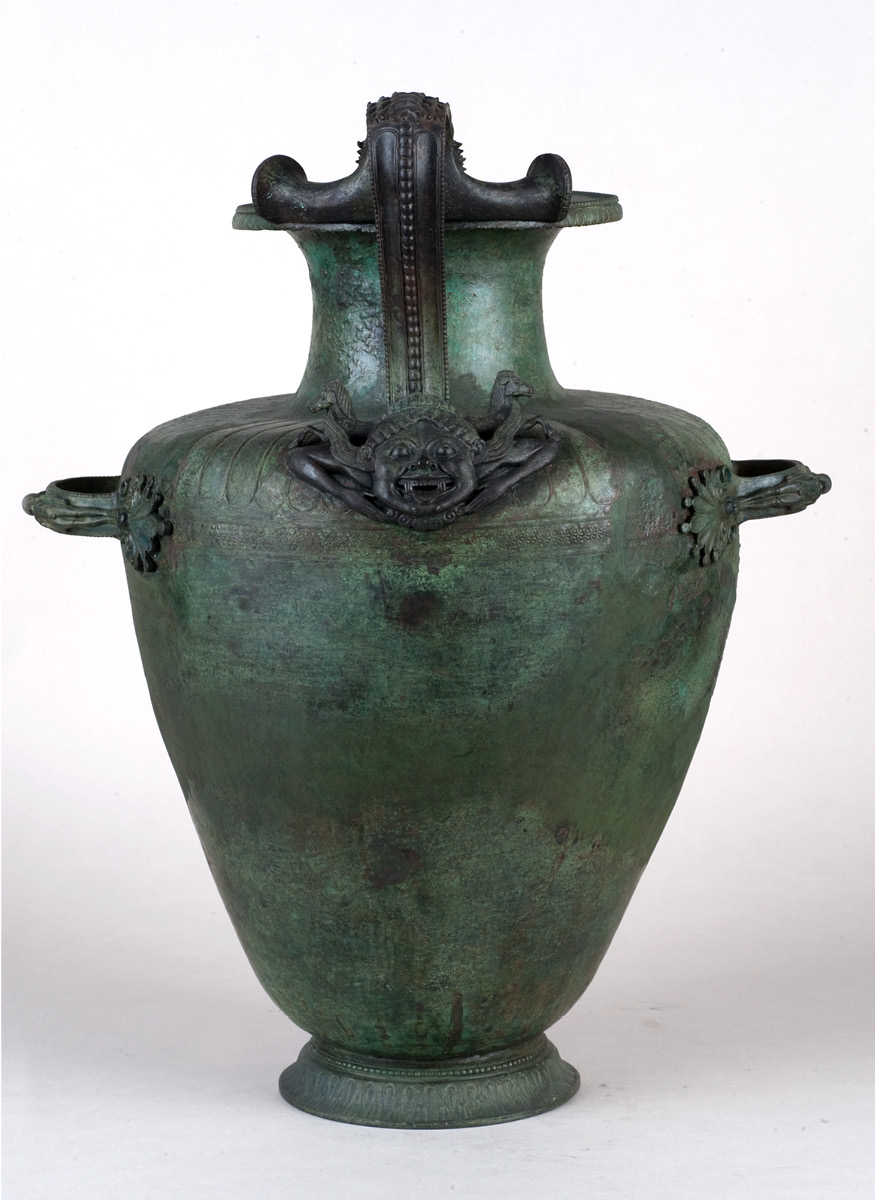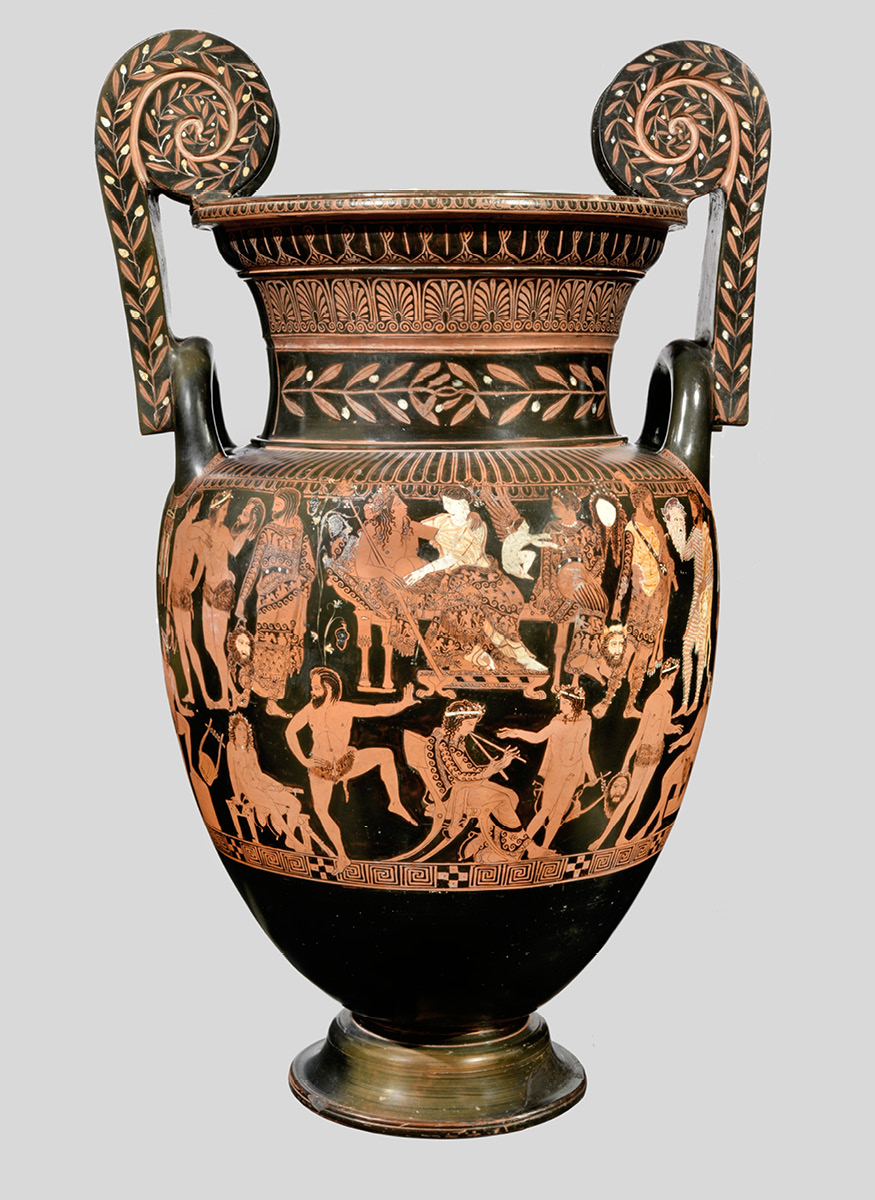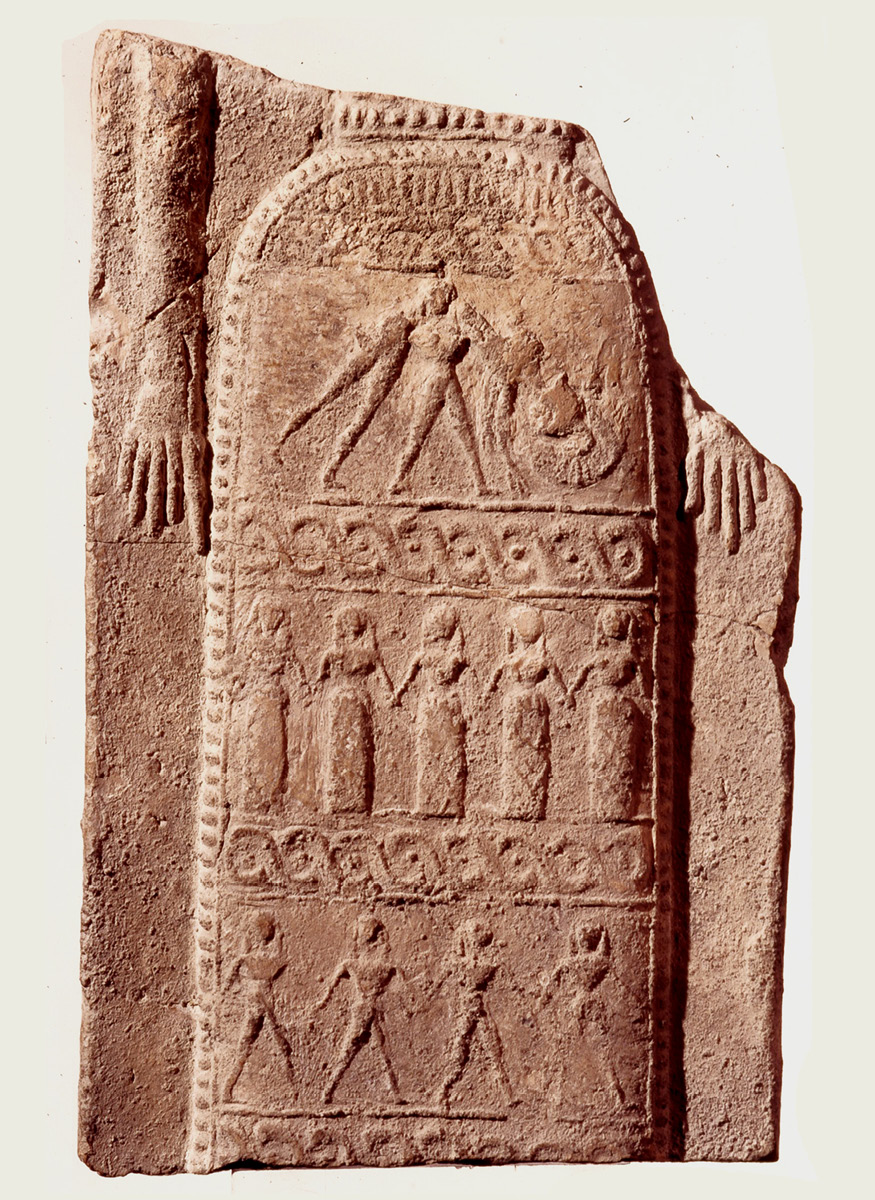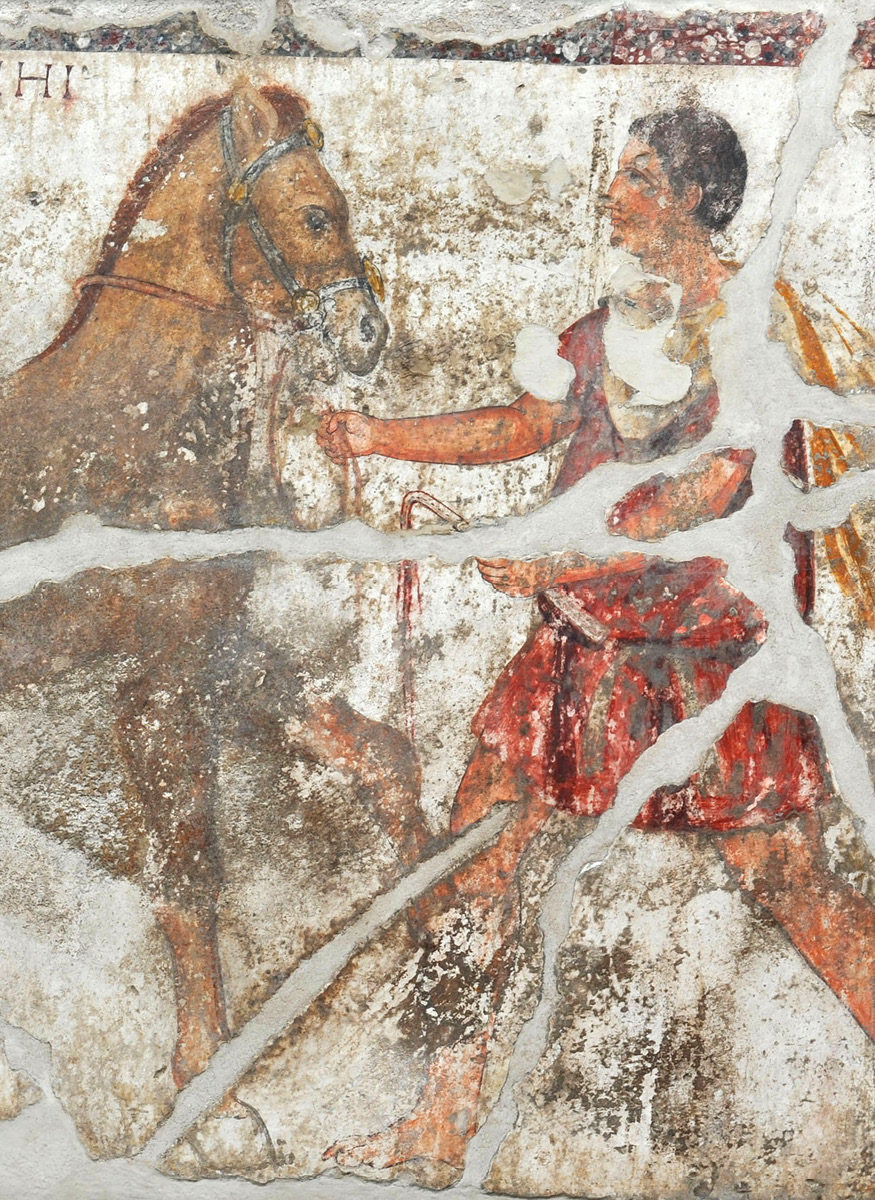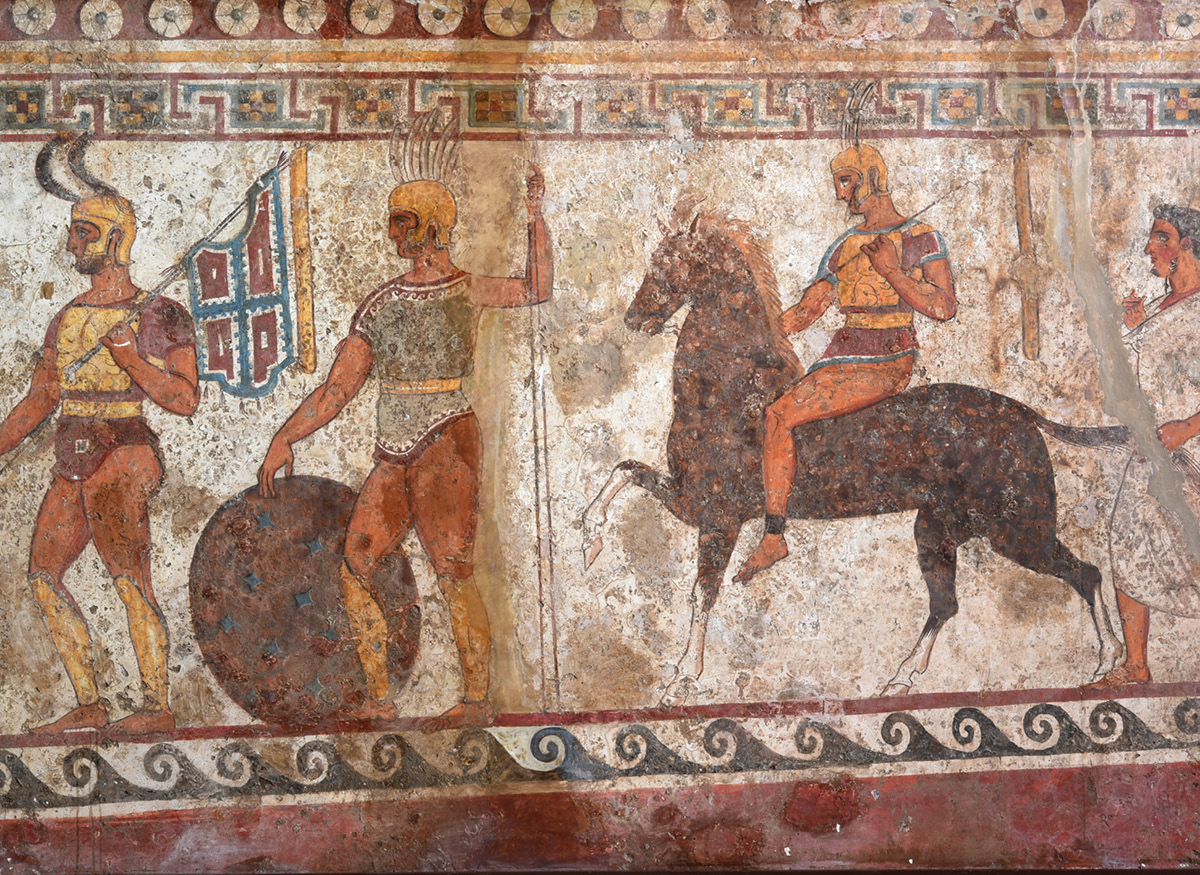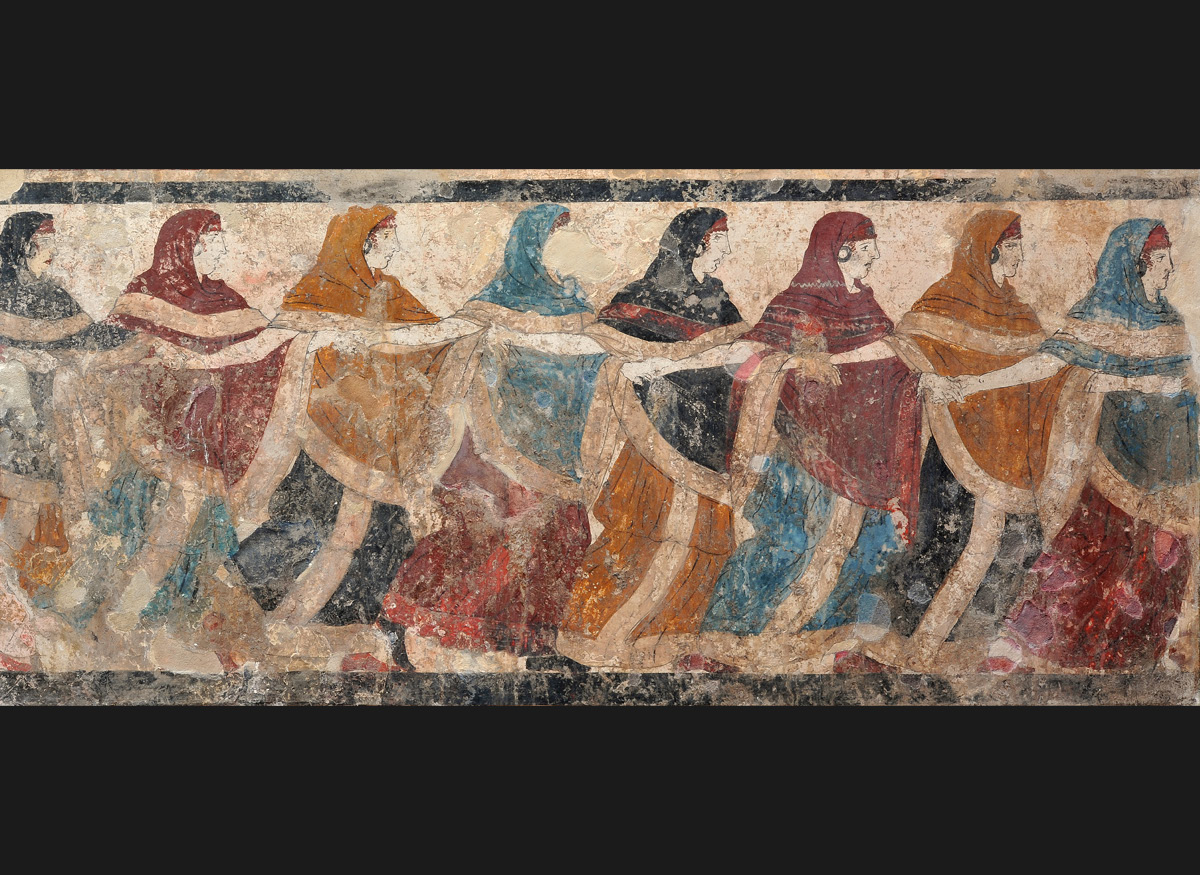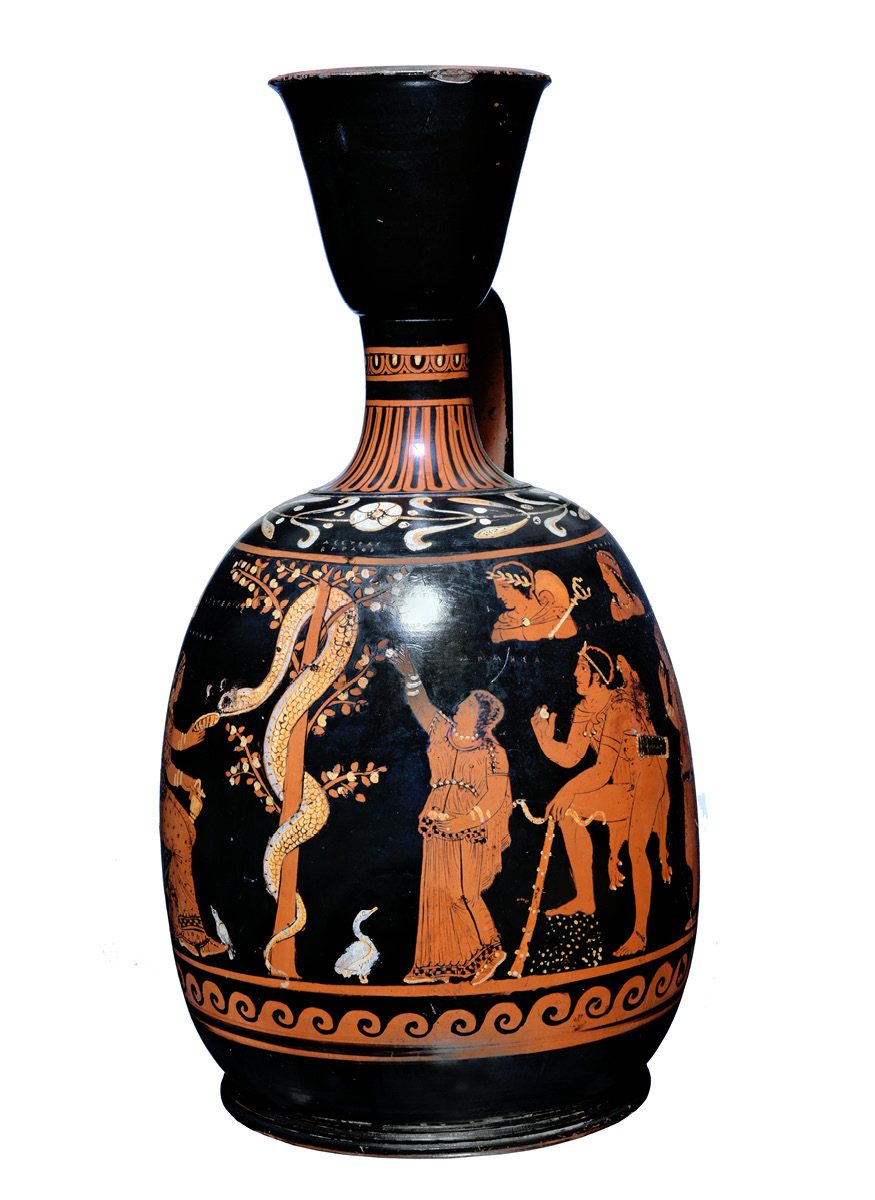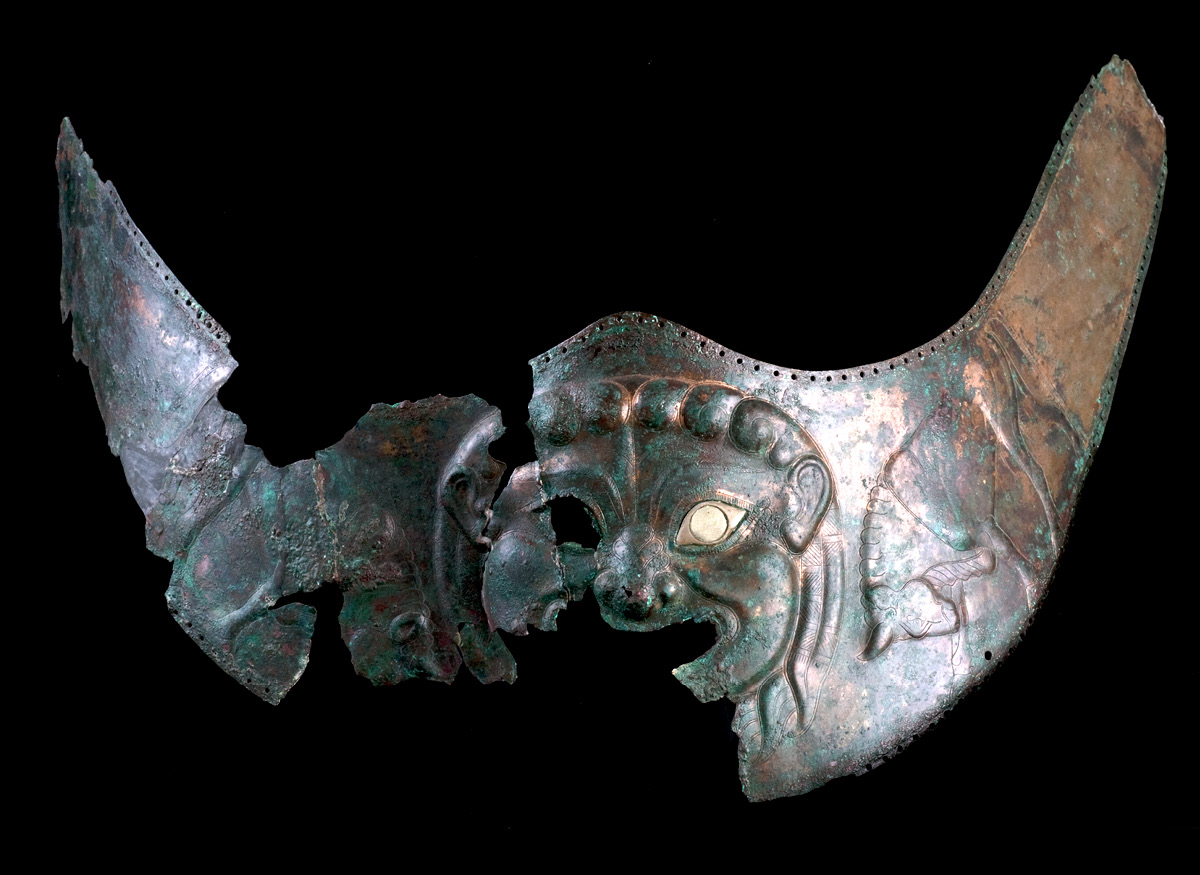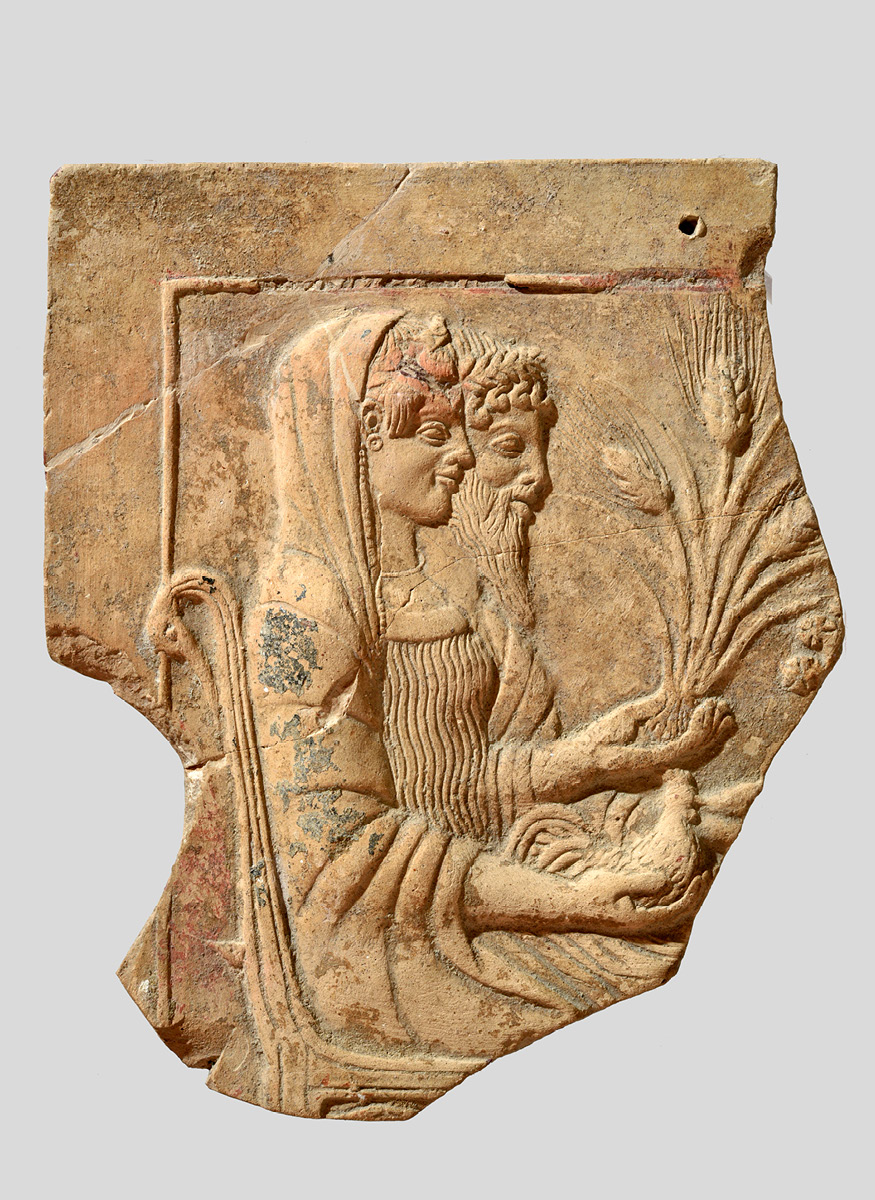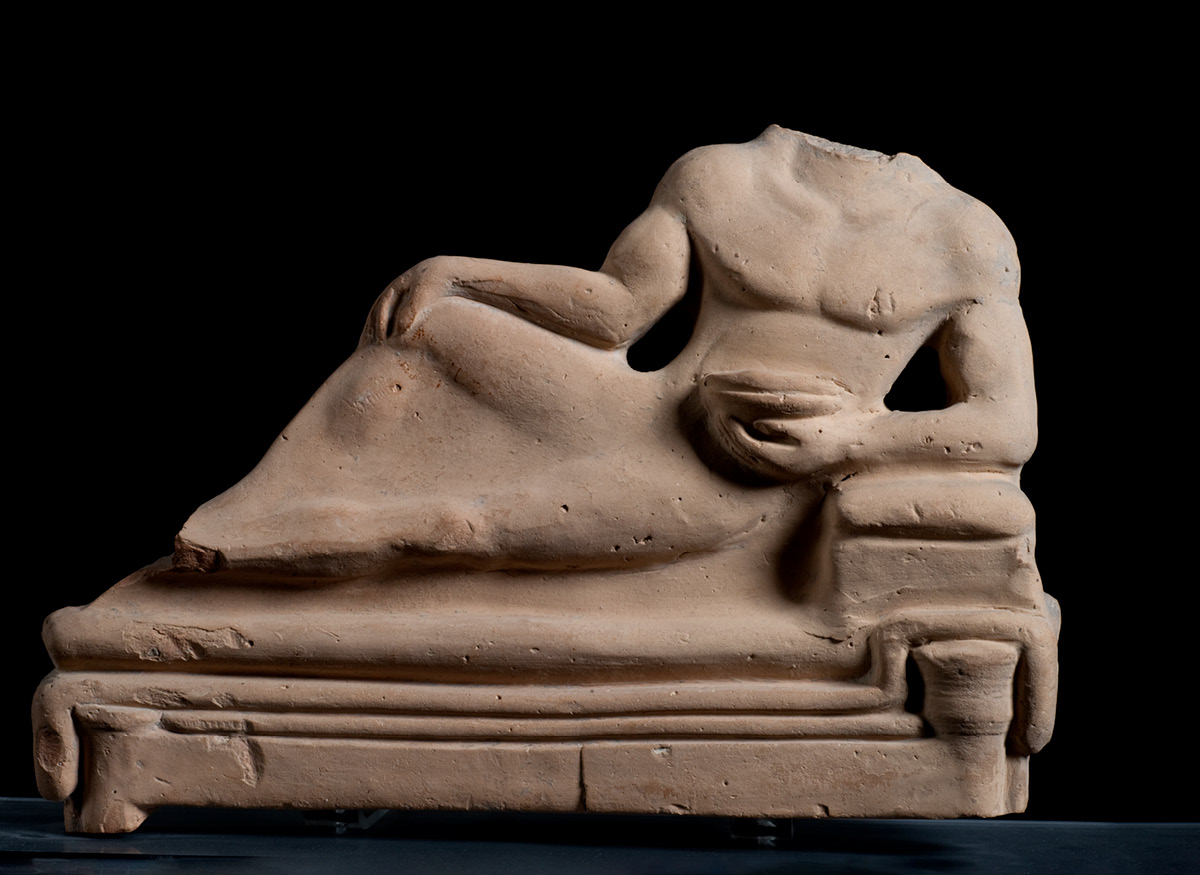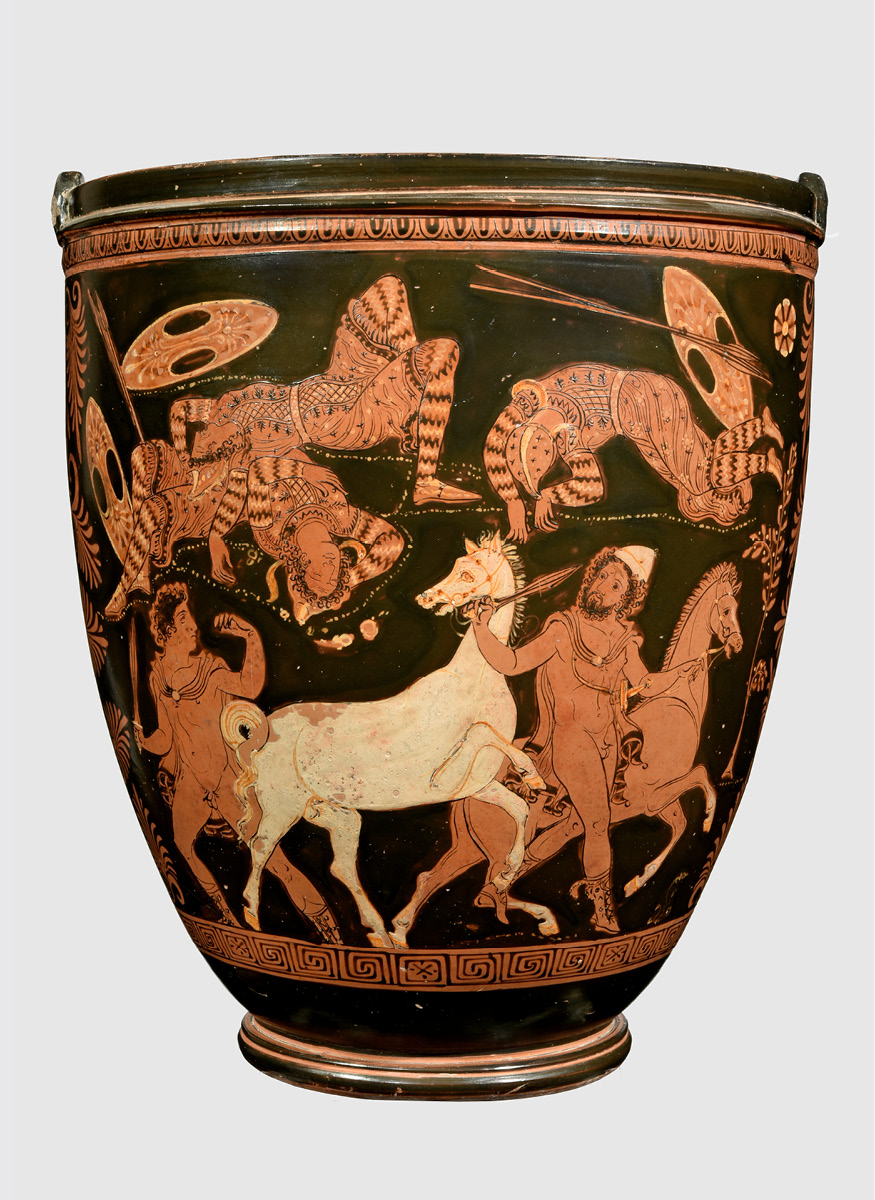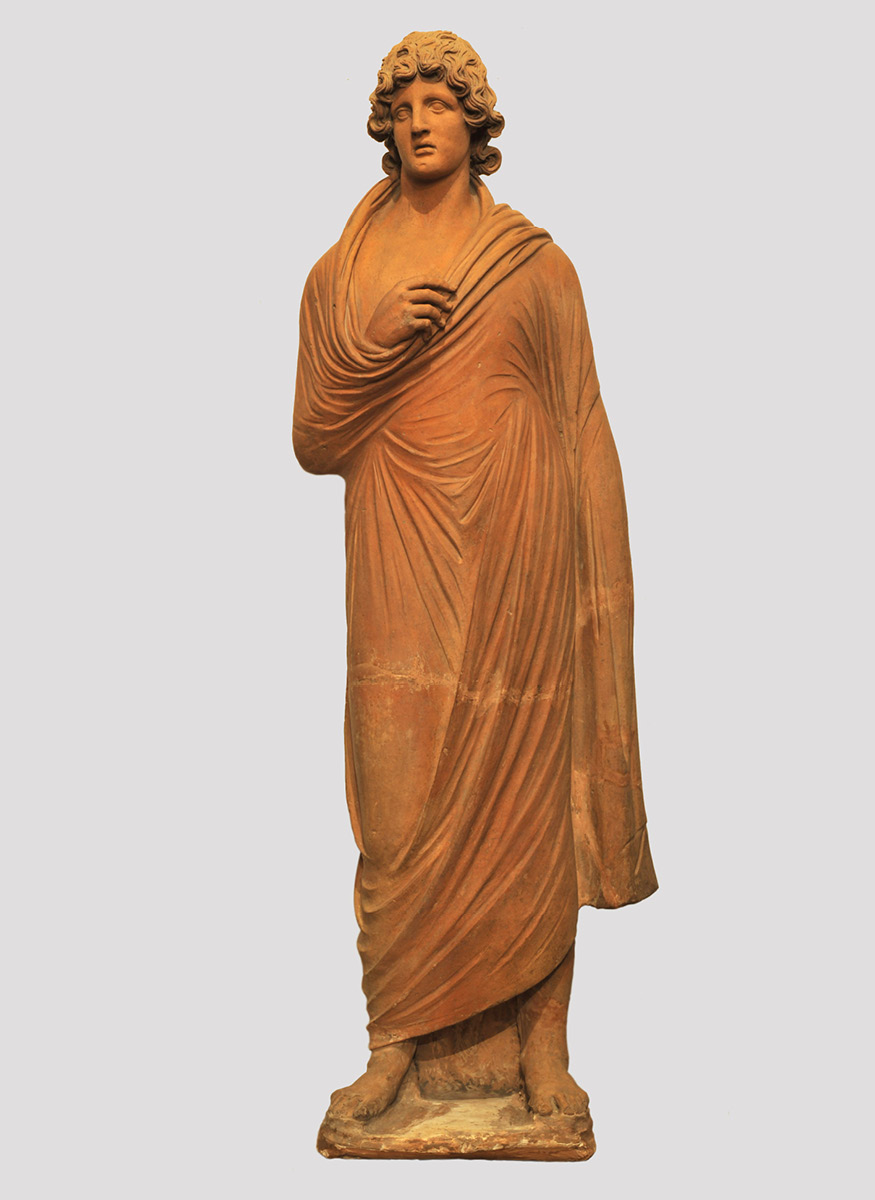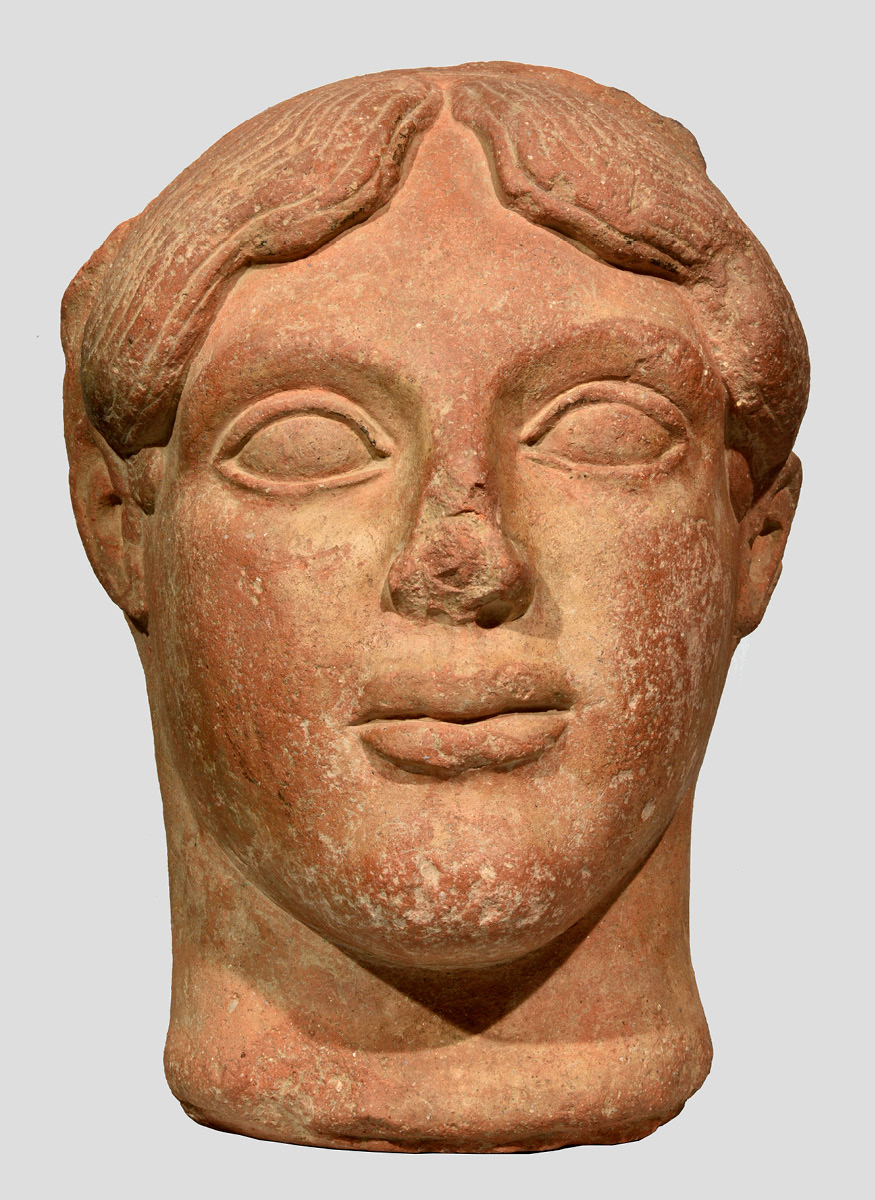Magna Graecia collection
The Magna Graecia collection exhibits all those relics of various origin and provenience which were excavated in the southern regions of the Kingdom of Naples, since the mid-18th century. In this area, around the late 7th century BC, ancient Greeks produced different types of mixed communities with native populations, originating that complex cultural phenomenon, historically known as Magna Graecia.
In the early 19th century, some important discoveries were made across Southern Italy in towns such as Paestum, Locri, Metaponto, Taranto, Ruvo and Canosa. Thanks to the prompt intervention of the central government, the finds entered the Royal Museum’s collection, which, in the meantime, were also being enriched through the purchase of some private collections. In the end, they gave rise to a unique treasure, both for the number and quality of the objects: thousands vases and relief pottery, some outstanding masterpieces such as the large volute krater from the so called tomb of the Darius vase and the funerary murals from the tomb of the Dancers from Ruvo, together with a large quantity of precious and sophisticated golden jewels, produced at Cumae and Taranto.
The display project is inspired to an innovative narrative criterion, which takes into account all current museum communication trends, aimed at guaranteeing a more immediate understanding of scientific contents. The collection describes the main historical and cultural phenomena, which characterized Greek colonization in Southern Italy, from the end of the 8th century BC up to the Roman conquest in the 3rd century BC. The historical evolution of the most important towns of Magna Graecia (Paestum, Metaponto, Locri, Taranto) unfolds through the focus on some very significant objects, which contribute to highlight the cultural interactions and the system of relations, developed among the many populations of different origins settled in Southern Italy. Their diverse and multiple characteristics shaped the identity of the so called Magna Graecia.
